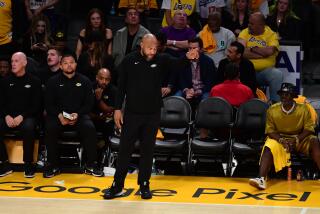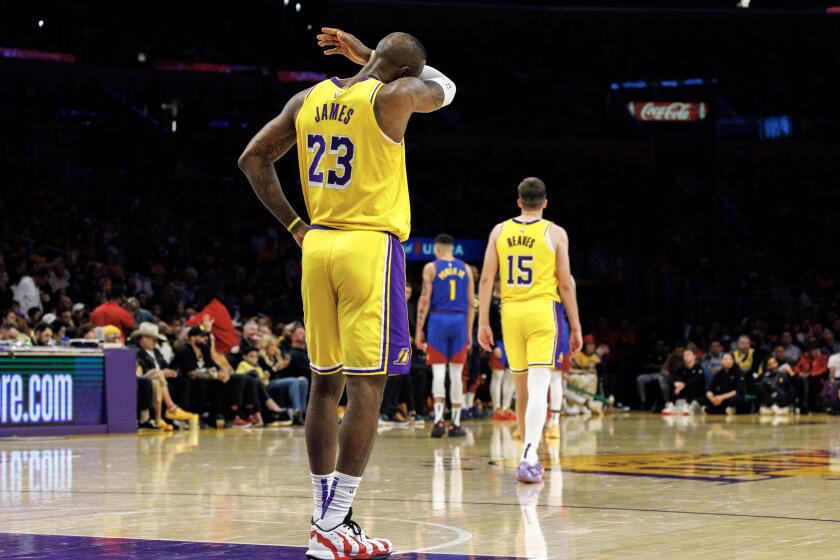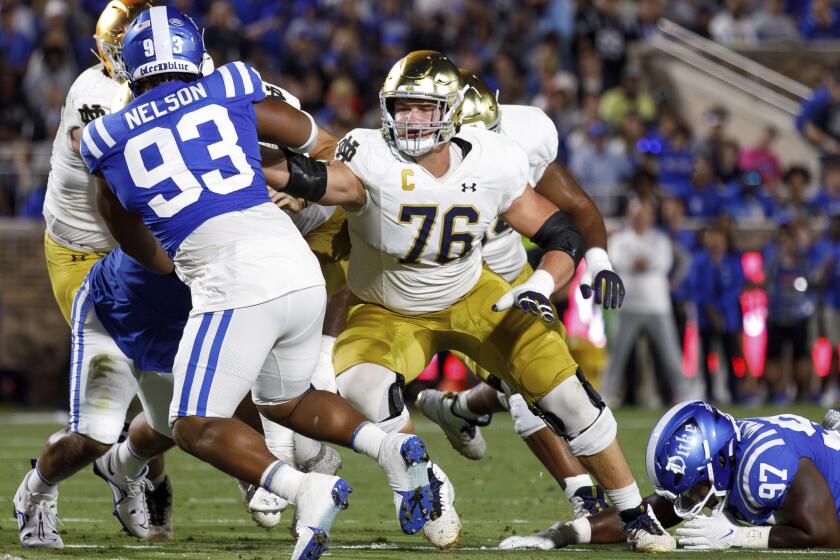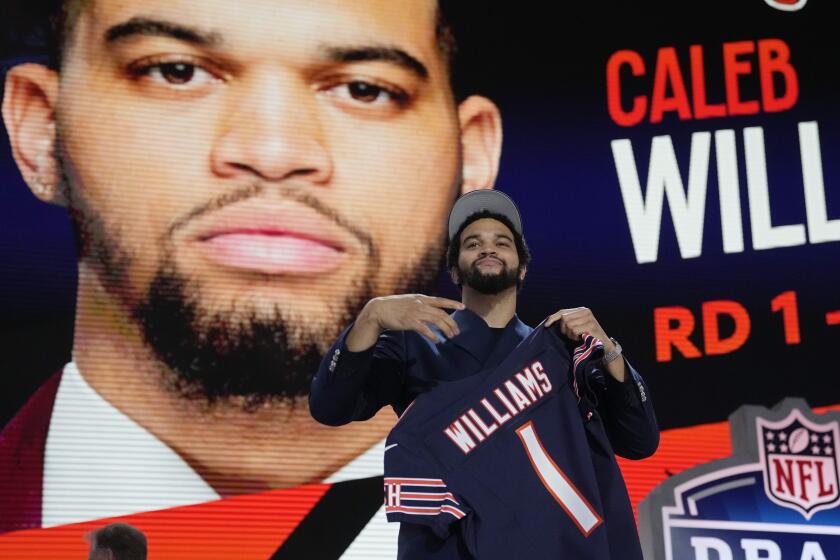Proposed changes still leave NFL overtime rule far from perfect
I think of the NFL’s overtime rule the way Winston Churchill looked at democracy. It’s the worst possible system — except for all the others that have been tried.
The overtime rule, sudden death that starts with a coin flip, is unfair, imbalanced, hopelessly flawed … and the best that we have.
Not everyone agrees. So this month, at the owners’ meeting in Orlando, Fla., the league’s competition committee will propose a revamped overtime, one that gives both teams a better chance to touch the ball. But that’s an imperfect plan, too, proof that even some of the smartest football minds around — committee members Rich McKay, Jeff Fisher and Bill Polian among them — cannot build the perfect beast.
The proposal says the team that gets the ball at the start of overtime can win on the opening possession only with a touchdown. If that team kicks a field goal, the other team gets a possession with a chance to either win with a touchdown or tie with a field goal. If the score is tied after that, it would be sudden death from that point on.
If neither team scores on its first possession, the game would continue on a sudden-death basis.
The plan will require a three-quarters-majority vote from owners to pass. Assuming it’s proposed as is (although it’s entirely possible it will be further modified), the system would be for postseason games only. That means it immediately would address the league’s pervasive fear that a Super Bowl will end the way this year’s NFC championship game did. In that game, the Saints won on a quick, first-possession field goal while Brett Favre and the rest of Minnesota’s offense watched helplessly from the Vikings’ sideline.
But the current system allows defense to win games, too. That’s what happened in the NFC wild-card game between Green Bay and Arizona. The Cardinals won by forcing an Aaron Rodgers fumble and returning it for a touchdown. That will be remembered as one of the best playoff games in league history, not as an indictment of the overtime system.
The system to be proposed feels contrived in the way that it handcuffs teams. Deciding how a team can or can’t win — a standard that’s different at different points of the season, no less — changes the game too much.
Not only that, but the new proposal has its problems. Yes, it eliminates the possibility of the coin-flip winner clinching with a quick field goal, but it then tips the scales in favor of the team that gets the second possession.
Imagine if the rule was in place for the Vikings-Saints game, for instance. After the Saints went up by three, Favre would have gotten the ball with the knowledge that the Vikings would need at least a field goal. Punting wouldn’t be an option. All four downs would be in play, and advance knowledge of that would have provided the Vikings a strategy-altering advantage.
Both the current and the proposed rules have their drawbacks. Is it really necessary to trade one flawed system for another? Don’t think so, especially if it threatens the undeniable excitement of sudden-death situations.
(As for the college overtime system of giving each team a chance to score from the opponent’s 25-yard line, it takes special teams entirely out of the equation. That might work in college, but it’s too much of a concession in the NFL.)
Sports Illustrated’s Peter King points to interesting numbers, ones that suggest that the improving accuracy of kickers has made the current system increasingly unfair. In the first five years of overtime, kickers made 61% of their attempts. In the last five years, that number improved to 82%. Since 1974, 73% of overtime games have been won by a field goal. The number of games won by the coin-flip winner has risen sharply over the last 16 seasons. Between 1974 and 1993, 46.8% of overtime games were won by the winner of the coin flip. That has jumped to 59.8% since 1994.
With that in mind, there might be minor tweaks that would make the current system more fair without completely overhauling it.
Any time you can remove luck from the equation, it’s a good thing. How about eliminating the coin flip and instead allowing the visiting team to decide whether to kick or receive? That could influence how both teams strategize at the end of regulation, which is not necessarily a bad thing.
Or, there’s the suggestion by NBC’s Al Michaels that the first overtime kickoff be from the 40, instead of the 30, leading to more touchbacks and fewer short field-goal drives.
Another option is simply leaving the rule as is. For teams unhappy with the current overtime system, there’s always this: Win the game in regulation.
twitter.com/LATimesFarmer
More to Read
Get our high school sports newsletter
Prep Rally is devoted to the SoCal high school sports experience, bringing you scores, stories and a behind-the-scenes look at what makes prep sports so popular.
You may occasionally receive promotional content from the Los Angeles Times.







